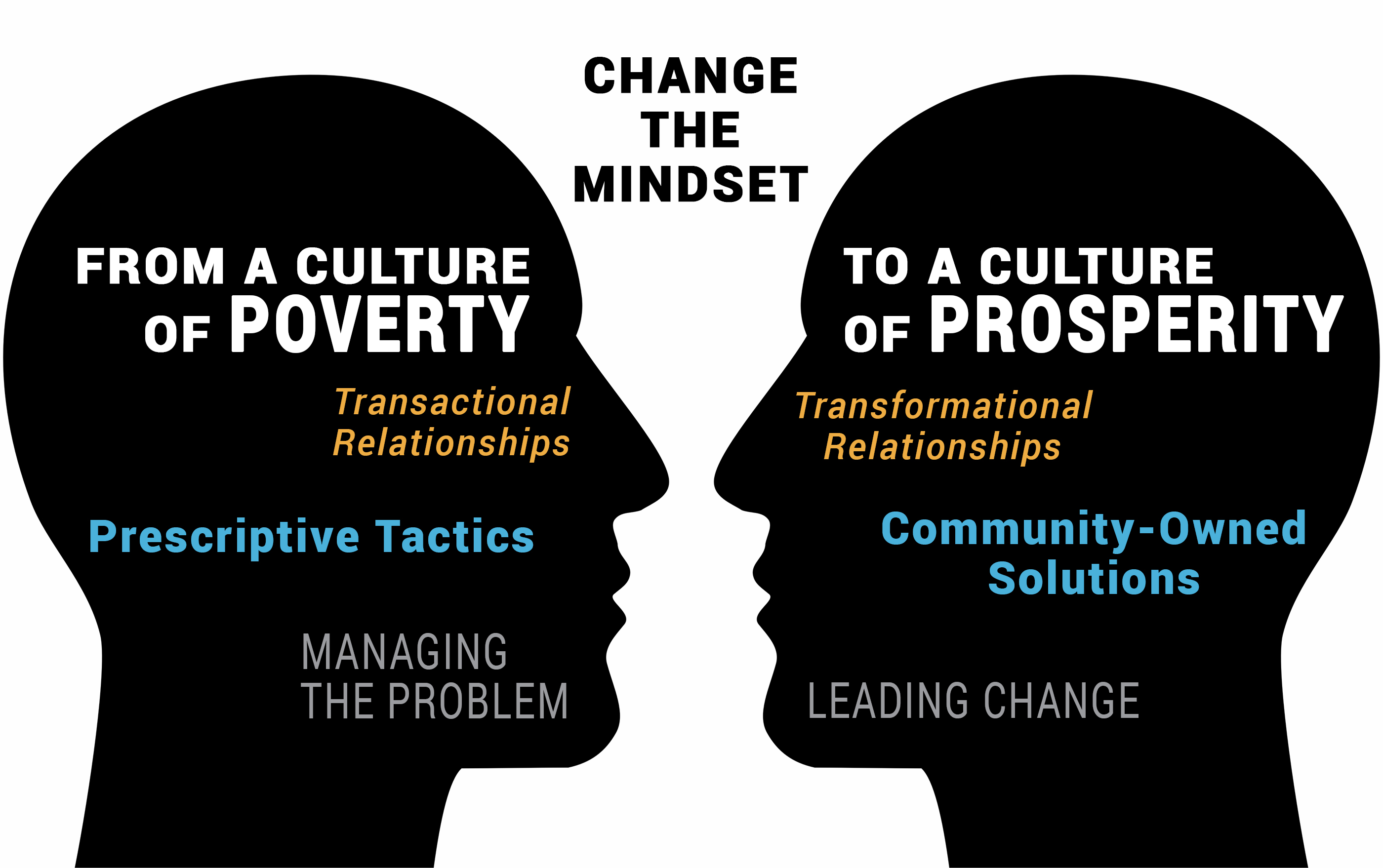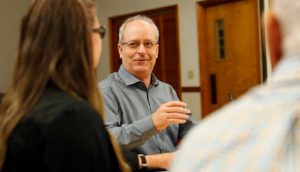I was in New York City a few years ago having a conversation with a former United Nations Ambassador about my first book, Until It’s Gone, Ending Poverty in our Nation, in our Lifetime. He asked me several questions about my assumptions regarding the nature of poverty and about my work at Circles USA. After thirty minutes of debate, he revealed what was really behind his questioning, as he said to me, “Jesus said the poor will always be with us. Is ending poverty going against the Bible?”
He’s not alone in this belief. For many in the nation, the biblical reference that “the poor will always be with us” is a strong suggestion that no matter what we do, we will always have poverty. Any attempt to eradicate poverty is a task that has no hope of success. Perhaps the best that can be hoped for is to manage poverty or maybe save a few people. But can we believe in ending poverty? Only if we change our mindset.

If one wants to change systems, one must put their energy into “high-impact strategies” that are aimed at changing the mindset that created the organization, or system of organizations. The mindset informs the goals that shape the programs of the organization. To change a system to end poverty requires that the system change its entire culture.
For example, when people don’t believe that the poverty rate can be reduced, let alone eliminated, a poverty management system is created. To change that system, we will have to place resources on affecting the deeper beliefs that are shaping the system’s culture. How can a dominating belief be challenged?
I took the Ambassador’s belief that “the poor will always be with us” to a theologian who works closely with a Circles chapter and discovered that the original teaching is taken out of context. If one googles “the poor will always be with us,” you will find evidence of this confusion, with warnings not to use this statement to discourage social action. Plus, there are many other beliefs in the Bible that provide a positive contradiction.
While this example from Christianity is a useful teaching tool, Circles USA partners with a range of secular and religious organizations. Circles USA’s inclusive, non-partisan community welcomes people from all faiths, ethnic backgrounds, sexual orientations, and socio-economic classes. Understanding the beliefs of these diverse community stakeholders is key.
Do you personally believe we can end poverty? What dominant beliefs about poverty did you hear growing up? Share your perspective with us at Circles@CirclesUSA.org.
The content for this Blog Series is drawn from the Poverty Reduction Lab program, a collaboration with CQIU. Stay tuned for more about:
- Dismantling the poverty management system
- Leading your community through the four stages of change
- Creating a pathway to end poverty

To receive subsequent blog posts, sign-up for The Big View Newsletter, our monthly bulletin about poverty research and policy change.
Warm regards,
~ Scott. C. Miller, Founder and CEO, Circles USA

